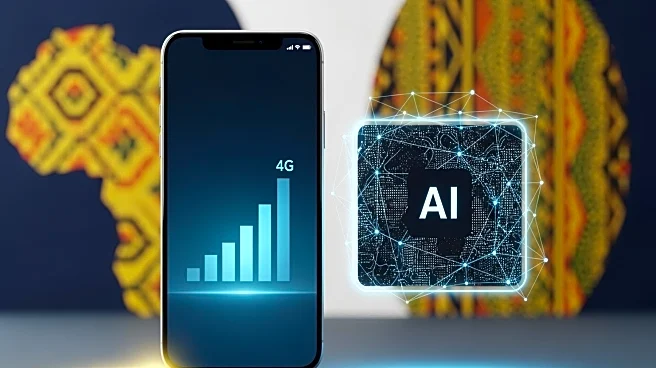What's Happening?
The GSMA has announced two major initiatives aimed at enhancing digital connectivity and AI capabilities in Africa. The first initiative focuses on making 4G smartphones more affordable across the continent.
Collaborating with six major African mobile operators, GSMA has proposed a set of minimum requirements for entry-level 4G smartphones, targeting a price point that could significantly increase internet access. The second initiative aims to develop inclusive African AI language models, leveraging resources from various stakeholders to address gaps in data, compute, talent, and policy. This effort seeks to empower local industries and ensure Africa's diverse languages are represented in digital systems.
Why It's Important?
These initiatives are crucial for bridging the digital divide in Africa, where smartphone affordability remains a significant barrier to internet access. By potentially lowering the cost of entry-level smartphones, millions more people could gain access to mobile broadband, fostering economic growth and social inclusion. The development of African AI language models is equally important, as it addresses the underrepresentation of African languages in global AI systems. This could lead to more culturally relevant AI applications and empower local innovation, ensuring Africa plays a significant role in shaping the digital future.
What's Next?
GSMA plans to engage with OEMs and technology companies to consult on the proposed smartphone requirements and gain support for affordable devices. Additionally, GSMA will lobby African governments to remove taxes on entry-level smartphones to further reduce costs. For the AI initiative, GSMA will establish working groups to drive progress in data, compute, talent, and policy, with partners committed to showcasing outcomes at upcoming events. This collaborative approach aims to maintain momentum and accountability in both projects.
Beyond the Headlines
The initiatives highlight the ethical and cultural dimensions of technology development, emphasizing the need for inclusivity and representation in digital systems. By focusing on African-led AI capacity, the projects aim to empower local communities and industries, potentially leading to long-term shifts in how technology is developed and utilized in Africa.








